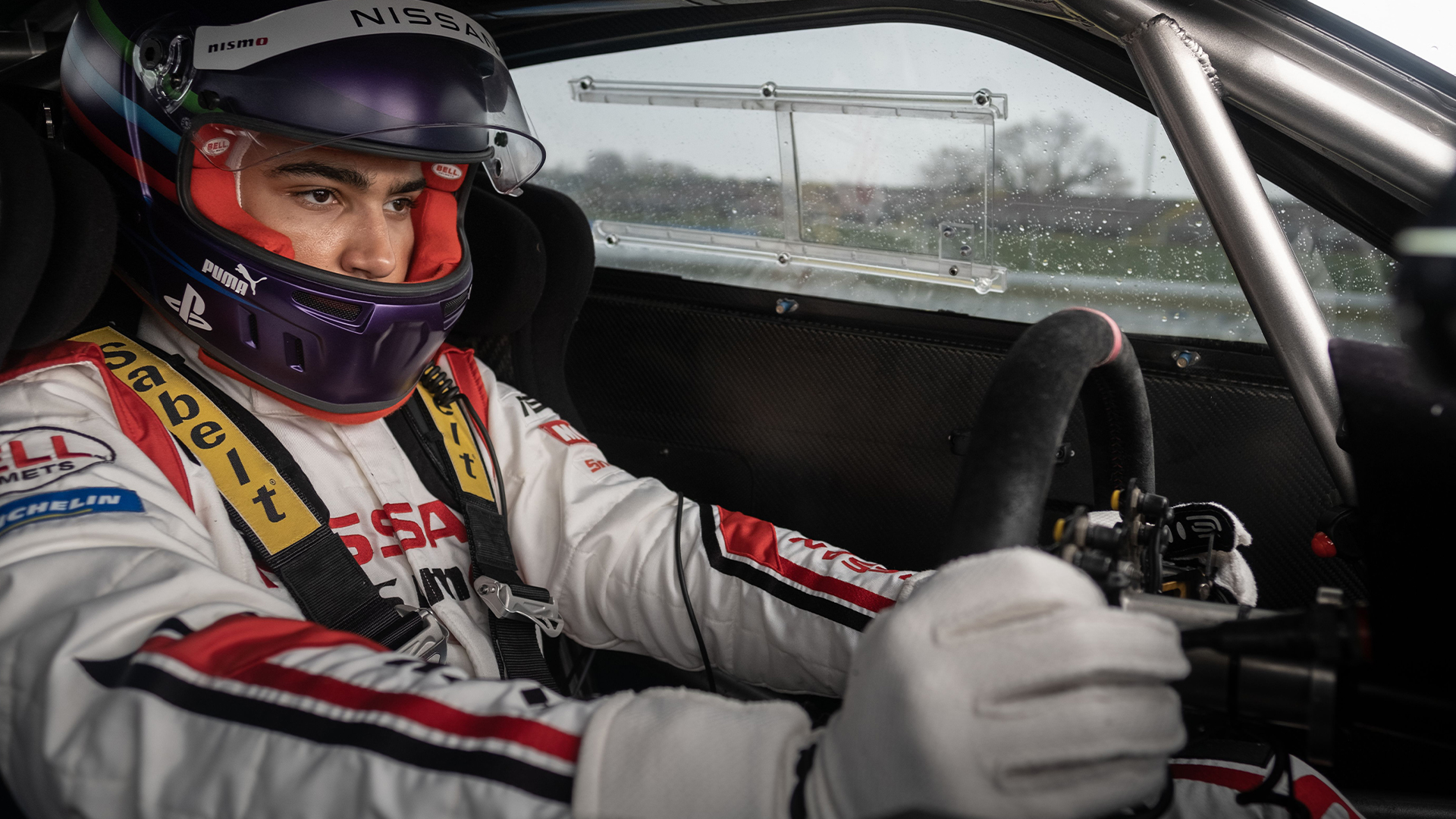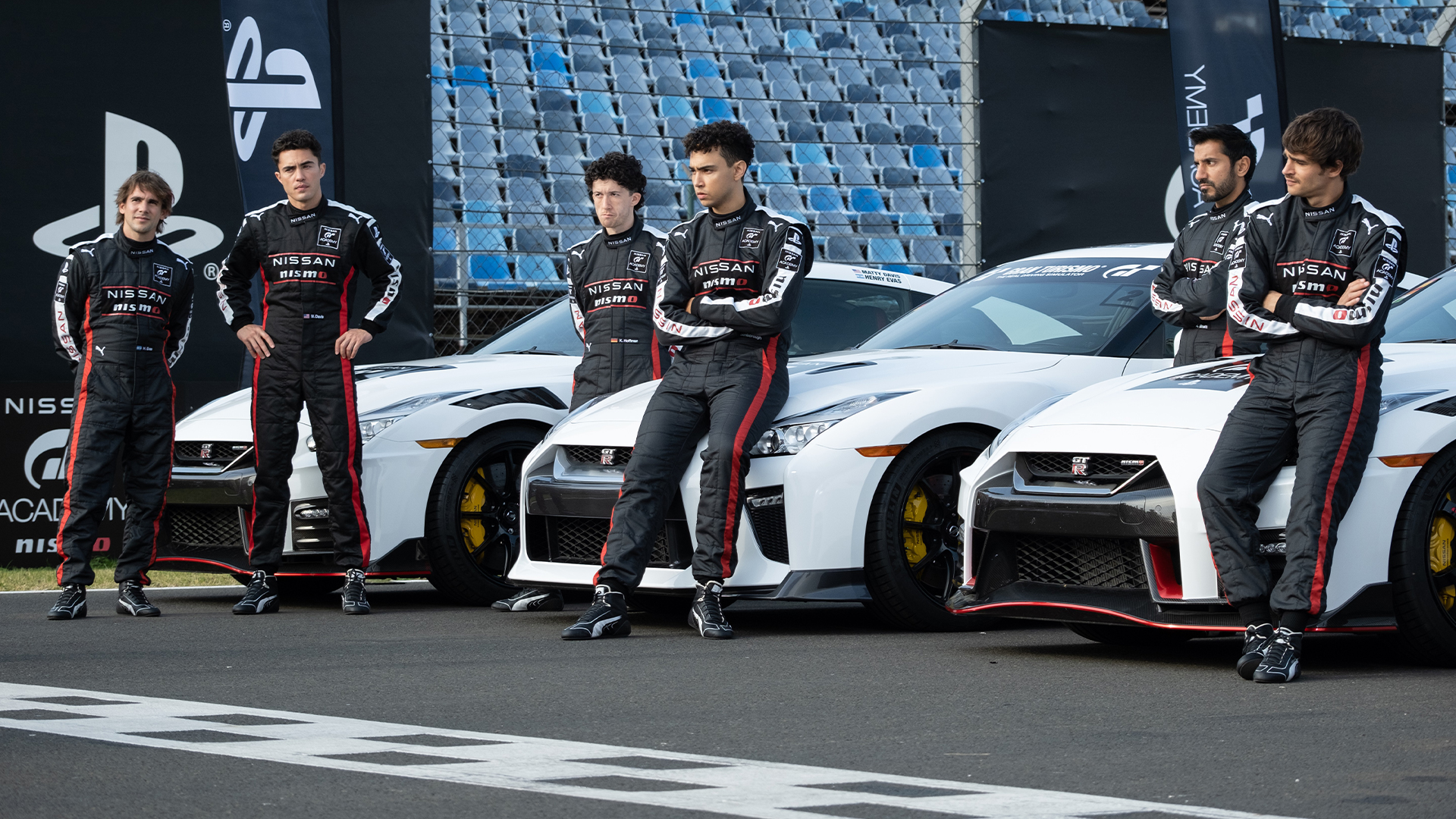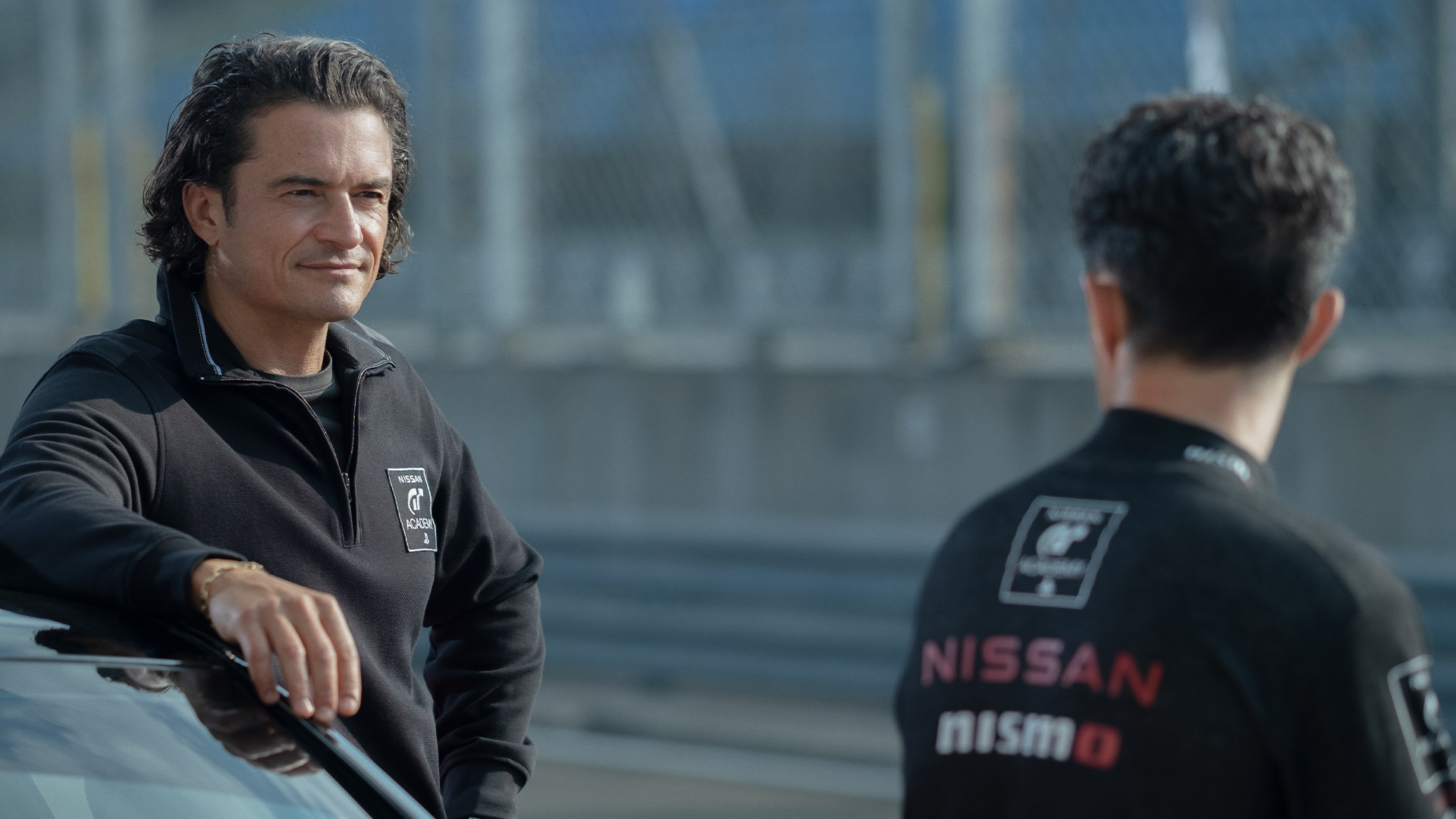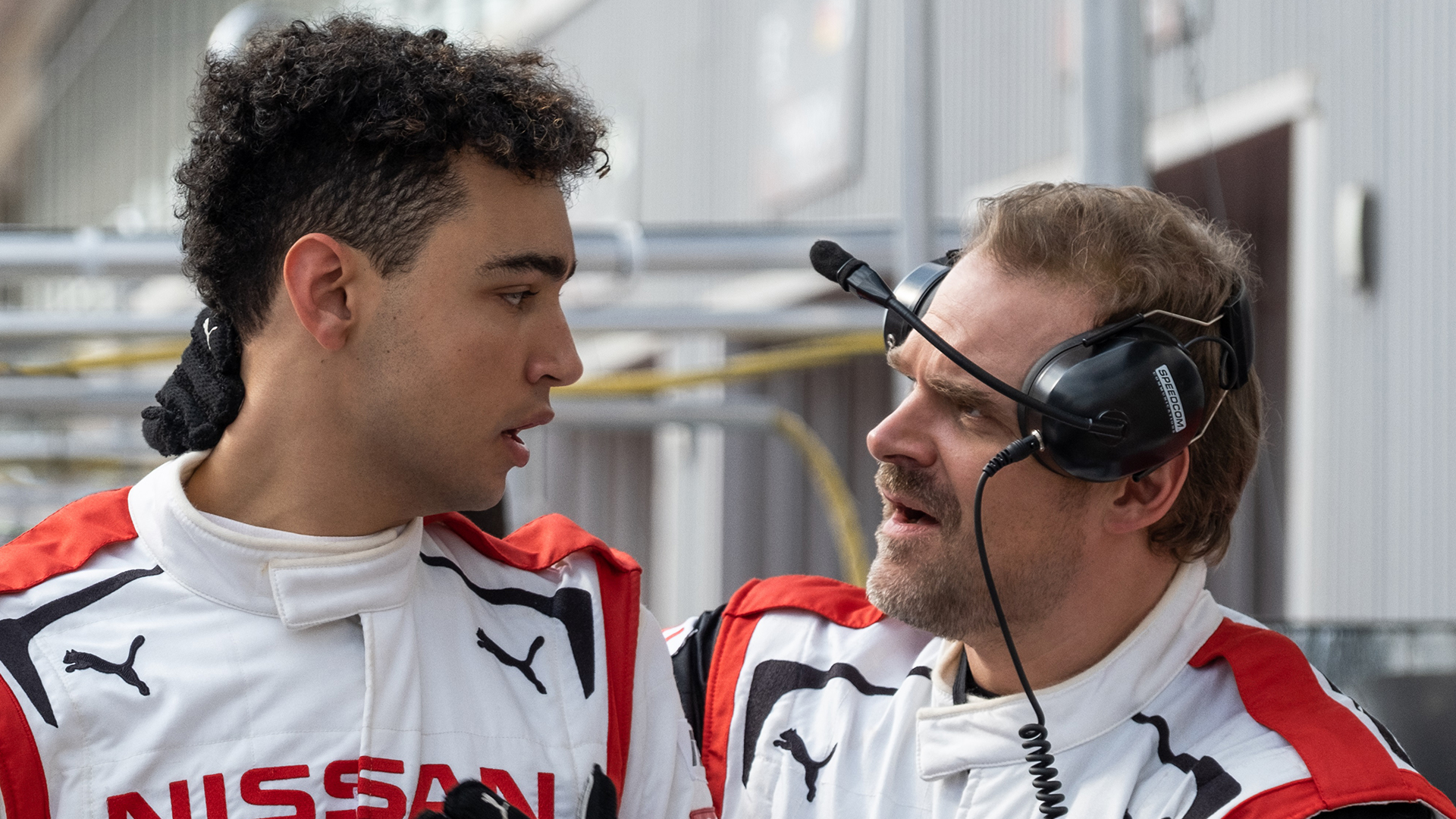Neill Blomkamp’s Gran Turismo is basically an ad, but there’s enough to deserve attention
Blomkamp’s first franchise film seems on paper like a director-for-hire gig, but he brings a zippy style to the pic.

Both based on the video game and a true story, Gran Turismo follows a teenager whose video game skills led him to becoming an actual professional race car driver. There’s enough in this “three-star banger” to take it for a spin, writes Rory Doherty.
Rev your engines for August cinema, folks, it’s officially mid-tier, mildly ambitious blockbuster season. This is the pit stop for all our small-scale big-scale entertainment, where we’ll have treats to choose from like Haunted Mansion, Blue Beetle, Meg 2, Strays, and crowned with a videogame racing film that looks so shrug-worthy that it’s added “Based on a True Story” to its title in an attempt to lure in ambivalent audiences. Cinema is well and truly back.
Of course, the rhythm of 2023’s release calendar has so far been upset by four $300 million blockbusters underperforming, with the runaway hits of the summer, Barbie and Oppenheimer, being priced at a tasty sub-$150 mil. So it’s perhaps explainable why Gran Turismo’s distributor Sony is panicking in what’s usually an easy month for midrange fare—all bets are off this year.
The film is based on the incredible true story of British gamer Jann Mardenborough, who graduated from playing racing simulator Gran Turismo to a successful motorsports career. In the film, Gran Turismo collaborates with Nissan to enlist the game’s top players in a racetrack boot camp with the promise of democratising motorsports and racing them in the top circuits.

Jann (here played by Archie Madekwe) beats the odds of, well, not being trained as a racer to make it onto Nissan’s team, but still has to deal with the pitfalls of his inexperience and pushback from the racing world that can only be described as “gamer prejudice”. Despite a choppy first half and undercooked character writing, the film knows what strengths to play to—slick and immersive racing sequences, and a heartfelt underdog angle that helps it cross the finish line, even if it won’t secure a spot on the podium.
The most fascinating aspect to Gran Turismo is not the gamer becoming a racer, it’s the director. Neill Blomkamp made an Oscar-worthy splash with his arresting allegorical sci-fi District 9, but despite getting decent budgets to explore fun but simple genre stories, his career hit a standstill after Chappie tanked and he was booted off an Alien reboot. He’s since been self-funding genre projects under the banner Oat Studios, making a VR possession horror film during COVID called Demonic that surely someone has actually watched.
Blomkamp’s first franchise film seems on paper like a director-for-hire gig, but it’s encouraging to see signs of his zippy, boyish filmmaking style and love for computer graphics enhancing a bigger cinematic experience. The handheld camerawork feels scrappy and livewire, and performances seem to all be tuned into a similar silly-but-sincere frequency. Fans of Chappie (there must be some!) will be rewarded by Gran Turismo wearing its heart on its sleeve, with big, brash attempts to get us rooting against Jann’s odds and sympathising with his lowest moments.
Gran Turismo’s most valuable player is David Harbour, who plays Nissan’s grouchy, hardass chief engineer Jack Salter, and brings basically the whole package to a story that sometimes threatens to be lacklustre. He’s got grit, humour, a great ability for pathos, confidently playing the tropey sports coach with the conviction that’s purely satisfying to see. Special commendation goes to Orlando Bloom as skeezy marketing man Danny Moore; while he’s not doing nearly a sophisticated job as Harbour, he feels better cast as a semi-scumbag than he’s been in years.

As welcoming as a “three-star banger” is in a summer season of flat-out masterpieces and expensive disasters, Gran Turismo doesn’t do itself any favours in the first half. Until the big race, both the screenplay and the basic filmmaking feels like it’s been glazed with a coating of slick and slight energy that thins the already weak dialogue and makes it impossible to ground ourselves in the reality of any given scene.
Even the training montages, the bread and butter of an underdog sports film, fail to truly satisfy—the entire film is pitched as someone learning motorsports from the ground up, but we get shockingly few details about how one would learn to race, as if the three credited screenwriters didn’t think they’d need to know the info to write it into the script. Or maybe they did, and the film’s too-quick editing (which makes huge chunks of the story also feel like a montage) left them on the cutting room floor.

Gran Turismo is basically an ad, but there is still an inherent joy of realising most of what’s on-screen did in fact happen—including a dark dramatic turn that flips expectations of an easy-to-digest popcorn flick on their head—and features Madekwe’s strongest acting. It’s seriously flawed in execution and ruthlessly archetypal in narrative, but these underdog movie archetypes do guarantee a certain level of enjoyment.
Between Blomkamp edging back towards the mainstream, a selection of impressive work from new and established actors, and the subtitle “based on a true story” actually delivering genuine enjoyment, there’s enough in Gran Turismo that deserves attention. But next time, let’s just hope everyone involved lands a first-place trophy instead of a participation prize.
























